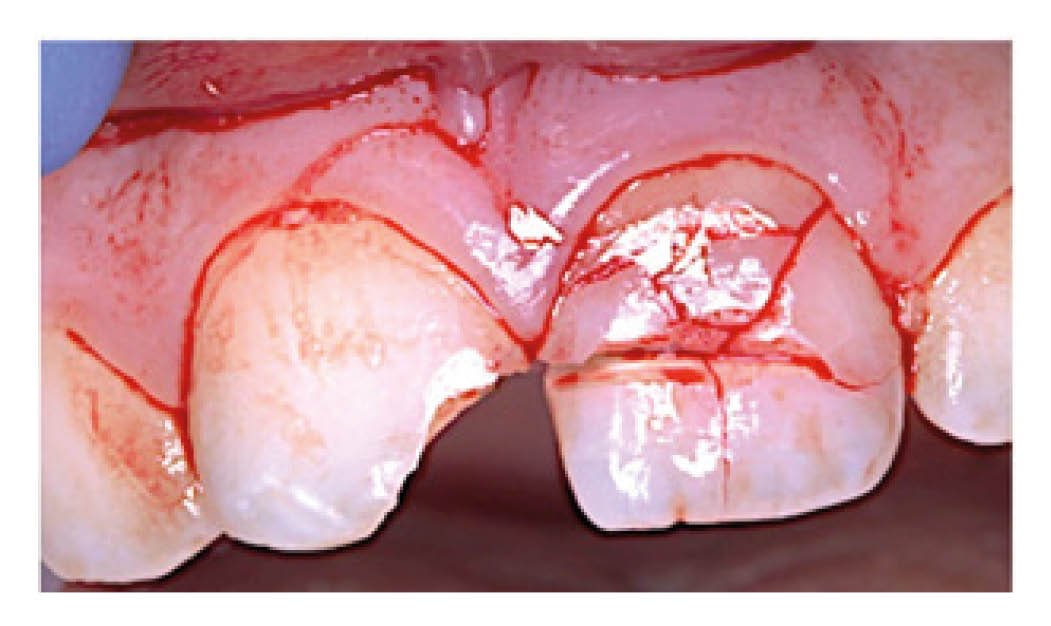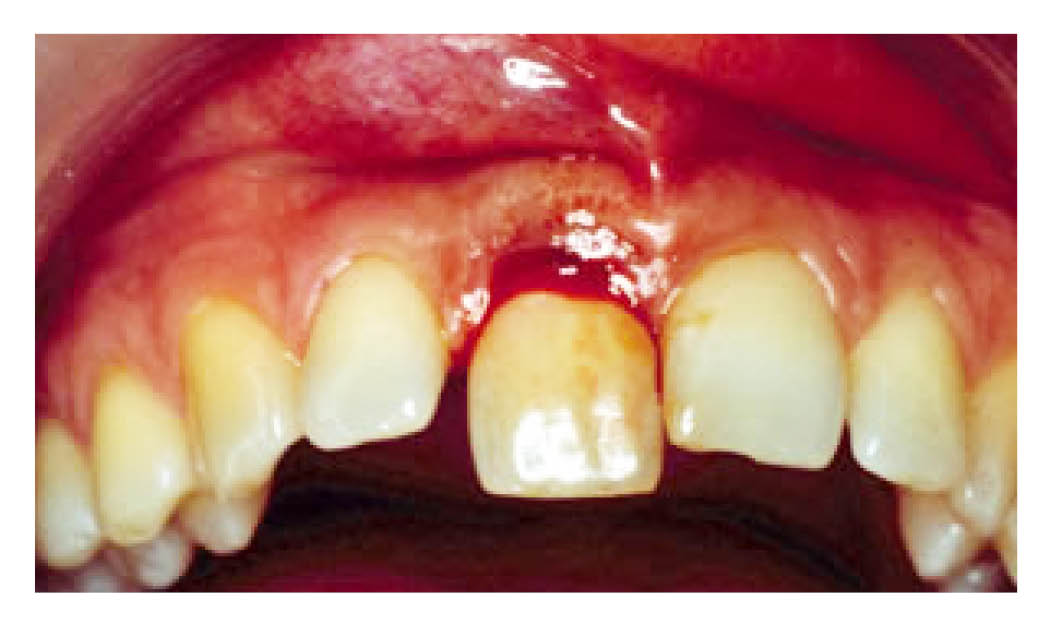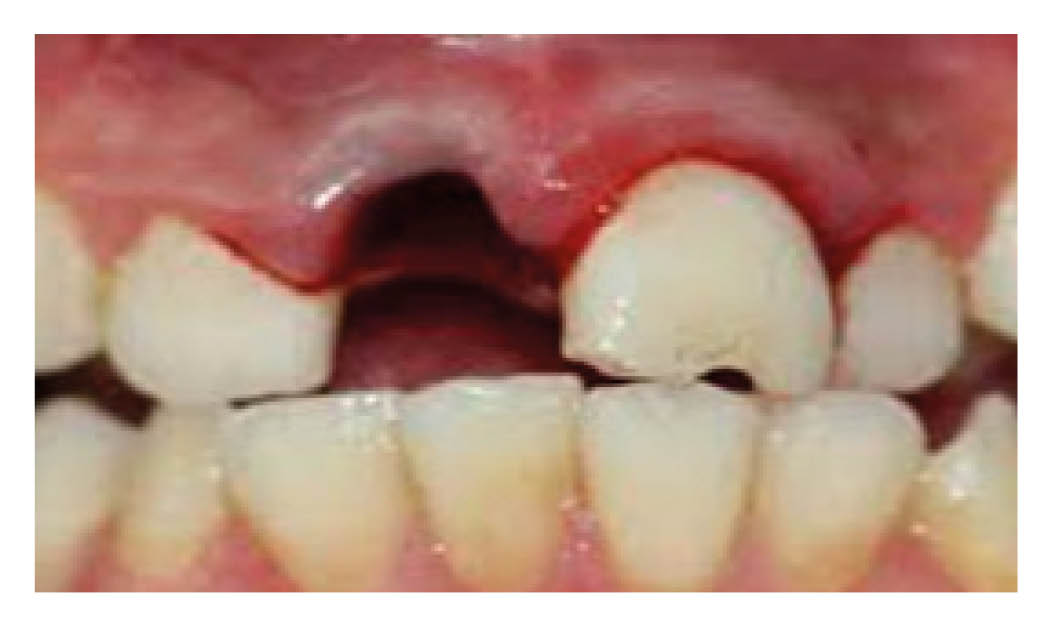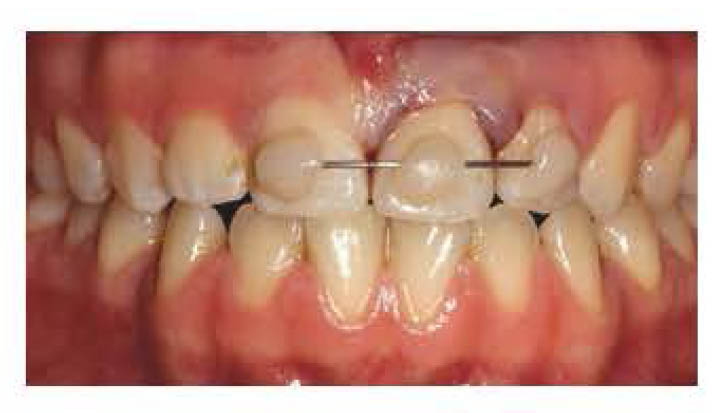Dental trauma
Information for patients from the Oral and Maxillofacial Department
This leaflet will explain the following.
What dental trauma is, and what dental trauma you may have experienced.
What treatment you may need.
How to look after your mouth in the weeks ahead.
Who to contact if you have any concerns.
We hope this leaflet answers some of the questions you may have. If you have any further questions or concerns, please speak to a member of your healthcare team.
What is dental trauma?
Dental trauma includes injury to the teeth, lips, gums, and tongue. It can happen at any time, anywhere, to anyone. It affects all age groups.
Dental trauma commonly happens because of:
a sporting injury
road traffic accident, or
physical violence.
There are many types of dental trauma that can affect both baby teeth and permanent (adult) teeth.
What type of trauma did I sustain?
There are three common types of injuries that can happen.
-
 Broken or fractured teeth
Broken or fractured teeth -
 Loose or displaced teeth
Loose or displaced teeth -
 Knocked-out (avulsed) teeth
Knocked-out (avulsed) teeth
Broken or fractured teeth, which can have sharp edges and be sensitive.
Loose or displaced teeth that have moved out of position but are still in the socket. These can interfere with your bite.
Knocked-out (avulsed) teeth are when a tooth has completely come out of the socket and the mouth.
What treatment will I need?
The treatment differs depending on the type of trauma you sustained, and whether your permanent or baby teeth were involved.
Broken or fractured teeth are treated either by sticking your tooth fragments back on or building-up your teeth with a white filling. This is done by your dentist.
Loose or displaced teeth are treated by repositioning your teeth and splinting them for 2 to 4 weeks.
Knocked-out or avulsed teeth are placed back into the socket if they are permanent teeth, and splinted for 2 to 4 weeks. See below for more details about splinting. You will need root canal treatment, as the nerve has been irreversibly damaged. Root canal treatment is carried out either with your local dentist or in the hospital.
What is a splint?

A splint is a metal wire. It is held in position with white filling material, to hold your damaged teeth in position.
Depending on the type of injury, the splint will remain on your teeth for 2 to 4 weeks.
What will happen next?
We will tell you whether:
you will be contacted for an appointment in the Maxillofacial Department at William Harvey Hospital (WHH) to continue your treatment, or
you should see your local dentist for ongoing treatment.
What will happen if I come back to William Harvey Hospital?
During your follow-up appointments at WHH, we will:
take clinical photographs
carry out a full examination; and
take any additional x-ray pictures needed to check for signs of infection.
We will let you know at every stage about the prognosis of your teeth. You must continue to see your dentist, even if we take you on for treatment at the hospital.
How do I look after my teeth now?
For the next 2 to 4 weeks
Eat a soft diet.
Avoid eating hard foods, and avoid habits such as nail biting or chewing gum.
Avoid biting on your front teeth.
Rinse your mouth gently with Chlorhexidine mouthwash 2 to 3 times a day for 7 to14 days. Chlorhexidine is available from any pharmacy. Do not use this mouthwash for longer than 14 days, as it will stain your teeth.
Take painkillers, such as paracetamol or ibuprofen (depending on what you usually take). Follow the recommended doses on the packet.
Brush your traumatised teeth gently. Use a soft toothbrush.
If your splint becomes loose or breaks, please see your dentist or contact us as soon as possible.
If you were prescribed antibiotics, finish your course.
If your injury happened where there was soil, please check your tetanus status with your GP.
Avoid contact sports until you are advised that it is safe. When playing contact sports in the future you must wear a mouth guard to prevent trauma to your teeth.
Go to follow-up appointments either with your dentist or at the hospital.
What should I expect in the long-term?
In the long-term, injured teeth can become discoloured (black, grey, yellow, or red). They can also lose vitality (feeling in the nerve) and need root canal treatment.
Your tooth can also be rejected, eaten away, and become infected. This can happen several years after your dental trauma. It is important to see your dentist regularly.
How can I contact the Maxillofacial Department?
If you have any concerns about your teeth and would like some advice, please contact the Maxillofacial Department at William Harvey Hospital.
Maxillofacial Department, William Harvey Hospital, Ashford
Telephone: 01233 633331 extension 723-6045.
Ask 3 Questions
There may be choices to make about your healthcare. Before making any decisions, make sure you get the answers to these three questions:
What are my choices?
What is good and bad about each choice?
How do I get support to help me make a decision that is right for me?
Your healthcare team needs you to tell them what is important to you. It’s all about shared decision making.
What do you think of this leaflet?
We welcome feedback, whether positive or negative, as it helps us to improve our care and services.
If you would like to give us feedback about this leaflet, please fill in our short online survey. Either scan the QR code below, or use the web link. We do not record your personal information, unless you provide contact details and would like to talk to us some more.
If you would rather talk to someone instead of filling in a survey, please call the Patient Voice Team.
Patient Voice Team
Telephone: 01227 868605
Email